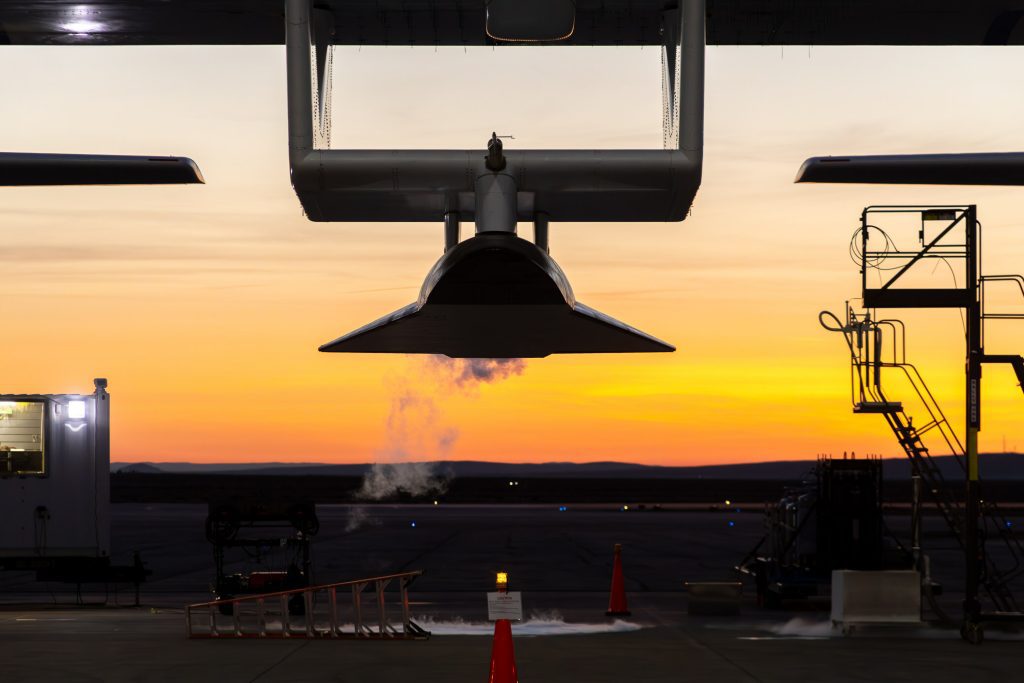The Hadley engine, developed by Ursa Major, successfully flew for the first time on March 9, propelling a Stratolaunch hypersonic test vehicle.
Stratolaunch operates a giant aircraft — a modified version of a double-fuselage Boeing 747-400 — that serves as a mobile launchpad. It carries hypersonic vehicles underneath its center wing until reaching the desired altitude. This allows hypersonic vehicles to reach higher speeds before ignition and avoids the complexities of ground launching
The March 9 test off the coast of California, over the Pacific Ocean, was the first powered flight of Stratolaunch’s Talon hypersonic test vehicle. The company said the vehicle reached high supersonic speeds approaching Mach 5, or five times the speed of sound.
Ursa Major founder and CEO Joe Laurienti said hypersonic flight “has been a massive military and governmental challenge” and private companies are now advancing this critical national mission. The U.S. military said there is a growing demand for hypersonic test capabilities in order to ramp up the development of next-generation weapon systems.
Laurienti said the flight of the Stratolaunch Talon TA-1 test vehicle marks a major milestone for the Hadley, a 5,000-pound-thrust liquid oxygen and kerosene, oxygen-rich staged combustion cycle rocket engine.
Based in Berthoud, Colorado, Ursa Major manufactures liquid engines for small space launchers and hypersonic vehicles, and recently announced plans to expand into solid rocket motors.
The company uses 3D printing to speed up the manufacturing process, and claims it can build engines in a matter of days.









